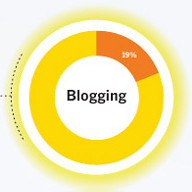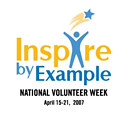Eric Mattson is a Seattle-based marketing consultant, podcaster, and expert in social media. His joint research with the University of Massachusetts, Dartmouth has appeared in BusinessWeek, Inc., and Foxnews.com. What did it say?
Social media is here to stay.
Message boards, social networks, online video, blogging, wikis, and podcasting are all utilized by more than 10 percent of Inc. 500 businesses. Sixty-six percent said social media is important (which indicates a large gap between business and public relations).
Blogging, specifically, is utilized by almost 20 percent of these businesses. To me, this seems significant because business blogs are only a step away from becoming a tangible mainstream business tool. They are a 5-in-1 tool, if you ask me.
Are professionals in communication-related fields ready? I'm not sure. It seems most are still wondering whether blogs are valid.
I'm not surprised because some people are still confused how blogs might impact communication. I submit it does not matter whether 10 percent of people read blogs. It's the "pass-on" message that counts.
Right. Readers generally pass on insights they read on the Web to co-workers, industry peers, friends, and family. Some content spills into mainstream media.
Did you hear? Did you see? Did you know? And from these leads, the messages perpetrated online become the stuff of rumor, gossip, and infamy, making it difficult to track, difficult to identify sources, and difficult to manage.
It's easy to see some consistent patterns on this blog and others we manage. One blog entry might be read by one or two people (or 100), who pass it on to their co-workers, shareholders, friends, etc. Some pass links. Some pass e-mails. Some cut and paste content.
Occasionally, mainstream media might use it as a story source, either cited or used as a backgrounder for another, seemingly unrelated, story. And sometimes, the story or viewpoint might be used to spark additional observations and posts on the Web, creating a tsunami-like effect — rolling out over to New York or London or Primorsko-goranska. And then, the wave comes back, and out, again.
The bottom line: ignorance is not bliss when it comes to blogs or social media. No, I am not saying every blog entry someone writes will have an impact on your business, but eventually one just might.

Social media is here to stay.
Message boards, social networks, online video, blogging, wikis, and podcasting are all utilized by more than 10 percent of Inc. 500 businesses. Sixty-six percent said social media is important (which indicates a large gap between business and public relations).
Blogging, specifically, is utilized by almost 20 percent of these businesses. To me, this seems significant because business blogs are only a step away from becoming a tangible mainstream business tool. They are a 5-in-1 tool, if you ask me.
Are professionals in communication-related fields ready? I'm not sure. It seems most are still wondering whether blogs are valid.
I'm not surprised because some people are still confused how blogs might impact communication. I submit it does not matter whether 10 percent of people read blogs. It's the "pass-on" message that counts.
Right. Readers generally pass on insights they read on the Web to co-workers, industry peers, friends, and family. Some content spills into mainstream media.
Did you hear? Did you see? Did you know? And from these leads, the messages perpetrated online become the stuff of rumor, gossip, and infamy, making it difficult to track, difficult to identify sources, and difficult to manage.
It's easy to see some consistent patterns on this blog and others we manage. One blog entry might be read by one or two people (or 100), who pass it on to their co-workers, shareholders, friends, etc. Some pass links. Some pass e-mails. Some cut and paste content.
Occasionally, mainstream media might use it as a story source, either cited or used as a backgrounder for another, seemingly unrelated, story. And sometimes, the story or viewpoint might be used to spark additional observations and posts on the Web, creating a tsunami-like effect — rolling out over to New York or London or Primorsko-goranska. And then, the wave comes back, and out, again.
The bottom line: ignorance is not bliss when it comes to blogs or social media. No, I am not saying every blog entry someone writes will have an impact on your business, but eventually one just might.


















